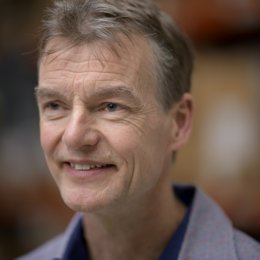Research and education for the multidisciplinary programme Materials Science and Engineering are organised by over 20 research groups within the faculties of Science and Technology (TNW) and Engineering Technology (ET). These research groups are subdivided into 5 research clusters or departments.
At the start of your Master’s, you will choose one research group in which you will work as a junior researcher. From this research group a mentor will be assigned to you to guide you through important decisions such as compiling the perfect set of courses and deciding on an internship.
Research Clusters
The clusters or departments participating in this multidisciplinary programme are:
- Energy, Materials and Systems
The Energy Materials & Systems cluster is application oriented and greatly benefits from its internationally recognised expertise and unique infrastructure on applied superconductivity and cryogenics. The main focus is on sustainable energy, with the ambition of developing technologies, materials and systems that play a key role in future energy chains.
EMS investigates the application of superconductivity in the power grid, as well as the application of cryogenic technologies and materials for liquid energy carriers such as liquid natural gas and hydrogen.The following research groups belong to this cluster:
- Mechanics of Solids, Surfaces and Systems
The department of Mechanics of Solids, Surfaces and Systems focuses on the development of technology for future manufacturing processes and new products by a science based engineering approach focused on material behavior, system behavior and robust optimisation.
Manufacturing new products and/or developing new processes requires a profound scientific understanding of (functional) materials (e.g. elastomers, polymers, composites, metals, bio-materials) and their interactions throughout the complete life cycle: during design, production, use and after service life.
The following research groups from the MS3 cluster are involved in the multidisciplinary master specialisation Materials Science & Engineering:
- Membrane Science and Technology
The University of Twente is globally recognised for its role in the area of Membrane Science and Technology. The cluster Membrance Science and Technology covers a broad variety of research areas within the membrane value chain, ranging from transport phenomena, surface chemistry, (polymer, inorganic and hybrid) membrane development, new applications up to process design.
Academic results can be applied to various fields, such as energy efficient gas or organic solvent separation, drinking water production or (waste) water purification aiming at removing even the smallest micro pollutants.
The following research groups belong to this cluster:
- Membrane Surface Science (MSUS)
- Inorganic Membranes (IM)
- Soft Matter, Fluidics and Interfaces (SFI)
- Films in Fluids (FiF)
- Advanced Membranes for Aqueous Applications (AMAA)
- Membrane Technology and Engineering for Water Treatment (MTEWT)
- Membrance Processes for Food (MPF)
- Nano Electronic Materials
The Nano Electronic Materials cluster at the University of Twente is the main place in The Netherlands for advanced thin film growth and the study of nanoelectronic materials, especially of inorganic materials. Based on in-house established and marketed innovative thin film deposition technologies, films are grown for basic studies as well as for a suite of applications.
The cluster holds strong ties with various high-tech research and development companies as Carl Zeiss SMT and ASML Research. In addition, this cluster houses advanced characterisation facilities, such as low temperature scanning probe techniques and electron microscopy.
The following research groups belong to this cluster:
- Inorganic Materials Science (IMS)
- Interfaces and Correlated Electron Systems (ICE)
- Quantum Transport in Matter (QTM)
- Physics of Interfaces and Nanostructures (PIN)
- Computational Chemical Physics (CCP)
- XUV Optics (XUV)
- NanoElectronics* (NE)
*Chair faculty Electrical Engineering, Mathematics and Computer Science
- Organic, Supramolecular and Polymer Chemistry
The following research chairs belong to this cluster:
- Thermal Fluid Engineering
The research group Thermal and Fluid Engineering translates fundamental insights from physics, thermodynamics, mechanics and nature into solutions for key problems in our society.
Modern engineering challenges concern the design and development of processes and equipment with high performance and minimal environmental impact, i.e. effective use of resources, energy and minimal generation of waste products and noise. Some applications are: wind turbines, pumps, airplanes, compressors, gas turbines, pyrolysis in fluidized beds, heat pumps, heat engines, multi-scale systems, thin layer flows, contact mechanics, and granular flows.
The department of Thermal and Fluid Engineering (TFE) department of the University of Twente comprises three research groups:
- Multi-scale Mechanics (MSM)
- Engineering Fluid Mechanics (EFM)
- Thermal Engineering (TE)

Everything is made of something and all of that needs to be produced in some way. Developing a product in either concrete, wood, metal or plastic requires completely different processes and designs.
Research Highlights
Understanding the magnetic, optical, electrical and structural properties of solids in terms of their chemical composition and atomic structure by numerically solving the quantum mechanical equations describing the motion of the electrons. "Taking the guesswork out of NanoScience and Technology".
Exploring thin film growth, (nano)structuring techniques, and properties of complex materials, in particular oxides. Focusing the research field on thin films with modified properties by doping or by artificial layered structures and superstructures.
